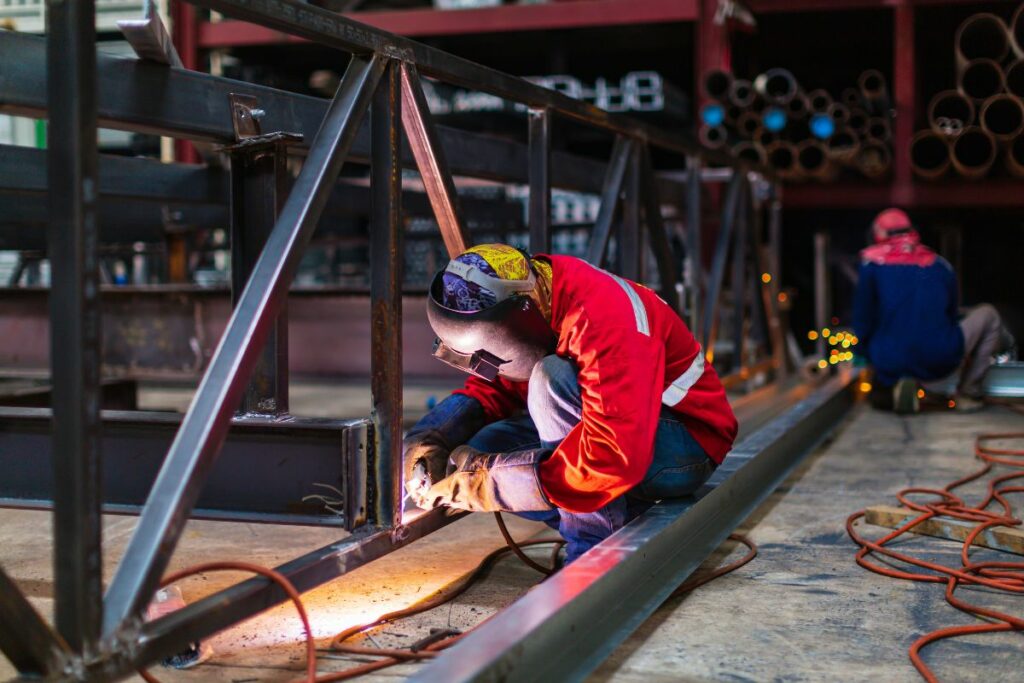
Welding is an integral part of construction, manufacturing, and various industries. This exciting profession demands more than just technical skills and knowledge. It requires resilience to navigate the inevitable setbacks and challenges that come with the territory. In the world of welding, where precision and durability are integral, mastering resilience is not just an option – it’s a necessity. Here are 6 things to take note of when mastering the welding profession:
1. Embrace Continuous Learning
Resilience starts with a commitment to continuous learning. The welding field is constantly evolving, with new techniques, materials, and equipment emerging rapidly. Setbacks, such as a faulty weld or a project delay, can be seen as an opportunity for growth. By adopting a mindset of constant improvement, you can turn setbacks into stepping stones. Engage in workshops, attend seminars, and stay updated with the latest industry trends to equip yourself with the knowledge to tackle challenges head-on.
2. Preparation Prevents Setbacks
The old saying “prevention is better than cure” holds true in the welding world. Good preparation can prevent a plethora of setbacks. Before starting any welding project, thorough inspection and assessment of the materials, equipment, and environment are vital. Identifying potential issues in advance allows you to address them proactively, reducing the chances of errors that could lead to setbacks. This practice not only saves time and resources but also enhances the overall quality of your work.
3. Cultivate Problem-Solving Skills
A resilient welder is an adept problem solver. They don’t succumb to frustration when faced with challenges; instead, they analyse the situation and find innovative solutions. A welding project can encounter various unexpected issues, such as material incompatibility, design flaws, or even adverse weather conditions. Having a well-honed problem-solving ability enables you to adapt on the fly and keep the project moving forward. This skill is honed through experience and a willingness to think outside the box.
4. Learn from Setbacks
Setbacks are not failures; they are opportunities to learn and improve yourself. Each setback offers a chance to gain insights into what went wrong and how to prevent it in the future. Whether it’s a weld defect, a safety concern, or a communication breakdown with the team, taking the time to reflect and learn from the experience is invaluable. Documenting setbacks and their resolutions can create a knowledge repository that benefits not only you but also your entire team.
5. Prioritise Safety
Safety is the foundation of resilience. A resilient welder places safety above all else. Setbacks caused by safety lapses can have dire consequences, such as injuries, damage to equipment, and project delays. Prioritising safety through proper training, following safety protocols, and using personal protective equipment (PPE) reduces the likelihood of setbacks caused by preventable accidents. A commitment to safety also promotes a culture of responsibility and accountability, creating a more resilient work environment.
6. Build a Support Network
Resilience isn’t just an individual effort; it thrives in a supportive community. Connecting with fellow welders, mentors, and professionals in the industry creates a network that offers guidance and encouragement during challenging times. Whether it’s seeking advice on a complex welding technique or sharing experiences about overcoming setbacks, a strong support network provides you with a sense of belonging and the reassurance that you are not alone in facing challenges.
Maintaining a Positive Mindset Throughout
A positive mindset is the cornerstone of resilience. While setbacks can be frustrating, viewing them as temporary hurdles rather than insurmountable obstacles can make all the difference. Instead of dwelling on failures, focus on the lessons learned and the progress made. Cultivating a positive attitude not only boosts individual morale but also influences the overall team dynamics and project outcomes.
Mastering the welding profession is an ongoing journey that requires a combination of technical expertise and mental fortitude. Resilience isn’t about avoiding setbacks altogether; it’s about navigating them with grace and determination. By embracing continuous learning, practicing preparation, honing problem-solving skills, learning from setbacks, prioritising safety, building a support network, and maintaining a positive mindset, you can elevate your welding craft and emerge stronger from every challenge. Just as a well-executed weld joins two pieces of metal, resilience welds together the traits that make a welder truly exceptional.
